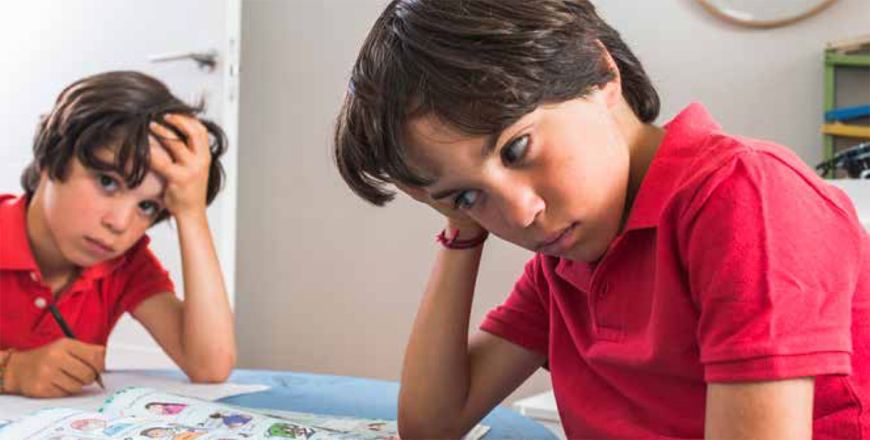You are here
Faster and better memory
By Dina Halaseh , Family Flavours - Sep 25,2022 - Last updated at Sep 26,2022

Photo courtesy of Family Flavours magazine
By Dina Halaseh
Educational Psychologist
How often have you felt your brain go blank when trying to remember something, especially when sitting for a job interview or exam? Can you imagine how many times your child also goes through this?
Information retrieval, whether for an exam or our everyday activities, requires skills that might be challenging for many adults and children alike.
Information is usually encoded, stored, then retrieved, so a struggle in any part of this process may cause an issue. The brain doesn’t process all information equally; some is easier to remember than other data — it all depends on many factors which affect memory.
How memory works
Understanding episodic (real-life events) and semantic information (knowledge) can help us understand how memory works.
•Episodic memory is related to real-life events and personal experiences
•Semantic memory focuses on what we learned about the world and the knowledge we gained
Both types are considered conscious memory. We also store unconscious information to help us perform many tasks without thinking about them, like writing or even driving.
Conscious memory can be retrieved. Recognition of these memories usually happens when we go through an experience associated with this memory. So, the moment we are faced with a multiplication problem, for example, our stored multiplication table will mentally pop-up. This is usually strengthened with repetition: The more we try to retrieve and recall information, the faster it gets and the better our memory becomes.
At home
The simple task of parents asking their children what they learned in school and children trying to recall and answer is considered practicing memory techniques. This strengthens their memory and helps them assess their learning. Their attempt to retrieve the information will increase their long-term retention of the material much more than rereading what they learned at school.
At school
Before a class starts, a teacher may ask students to try and recall what they learned so far. This can be done as an open-ended question, multiple choice, matching cards or questions. The main idea is for students to try and recall the information on their own without the aid of their peers or teachers. This will help them assess their knowledge and build their recall and memory skills!
Reprinted with permission from Family Flavours magazine
Related Articles
Have you ever helped your child memorise material for a test and then end up with your child going “blank” during the exam? To help your child reduce “blanking out”, your child needs to practise and try different memory strategies.
By Dina HalasehEducational Psychologist How can we boost our memory?
Several essential oils are proving effective for relieving symptoms of dementia, such as problems with memory, behaviour, mood and sleep. For someone with Alzheimer’s or other types of dementia, smell has the strongest and most direct connection to memory.


















